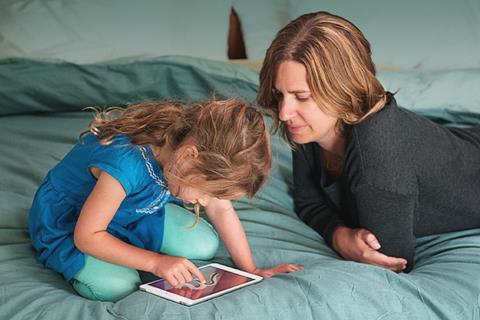Parenting is great in theory, but tough in reality. Andy Peck looks at some ways of evaluating your do’s and donts

A new survey has confirmed what most honest parents will admit: good principles are easy to create but much harder to follow through on.
Research of 2000 parents initiated by Hasbro who produce Play-Doh suggests that 85% of parents look back and laugh at their own unrealistic ideas about how they thought they would parent compared to the reality. At the top of the list with 47 percent of the vote, was the intention to ”always limit screen time”, and the next top with 39 percent: “I won’t shout at my child”. There’s no surprise that 33 per cent who said they would ”never bribe their children to be good”, only to find themselves giving in and doing deals to keep things smooth. The top 10 is:
1. Screen time will be limited 47%
2. I won’t shout at my child 39%
3. I’ll never use a tablet as a babysitter 34%
4. I will never bribe my children 33%
5. I’ll read to them every night 32%
6. My kids will never sleep in my bed 29%
7. I will never say “because I said so” 29%
8. My kids will never throw tantrums in public 28%
9. Establishing a good bedtime routine will be easy 28%
10. My kids will have good manners at all times 28%
Of course Christian parents are not immune to caving in on principles. Do we need to beat ourselves up when we do? Here’s some ways of evaluating what you are doing that may prove useful
1. Is this God’s idea?
There is a difference between you having an idea about your child, and God’s wisdom on how we should live. If you have caved on the basics such as lying and stealing, it’s more serious than suggested bedtimes and sugary sweets between meals. Make sure that your principles fit with God’s and you won’t go far wrong.
2. Do I need to explain to my children?
As a parent you want to appear to the fount of all wisdom and final arbiter of good and evil. I have known some parents persist with an unhealthy argument because they didn’t want to lose face. Of course it depends on the age of your children but there are times for saying. “I made a mistake. This is what you must do now” if you decide to change. If you feel you need to apologise then do so. I have a friend who says: ”church leaders need to be people who ‘repent’ because if they don’t do so, how on earth are the people they are looking to lead going to learn how to do so?” I think the same applies to parents. Repent literally means ‘change of mind’ and so admitting that you need to is not the end of the world and could be enormously helpful to your child.
3. Does this rule work for my child?
In our training to be adoptive parents we were reminded that there’s a difference between being ‘fair’ – you give all children the same size of cake, and ’treating your children the same’. One may need a different approach to anther when it comes to helping them learn something. The trouble with hard and fast principles is there is no room for assessing what might be good in the moment or deciding how a particular child might be best supported.
4. Does this say more about me than it does about their growth in Christ?
Ultimately the Christian parent is helping their child to be a follower of Jesus. And a ton of things we may like because it’s ‘how we were brought up’, or ‘worked for us’ may not be the best path for your child or children. Jesus has an individual pathway for his children, including you and will have one for your offspring too. Finding their unique gifting and personality will be part of that, and asking God to direct you in the moment will also be important.
5. Grace is always available
It’s not hard to induce ‘guilt’ in this kind of article, especially if it has triggered things in you. Thankfully God is not ‘up in heaven’ trawling through videos of your recent interactions with your children with a view to sending you an appraisal.
He is within you, empowering you for your next interaction and giving you peace as you face the next challenge. He’s on your side. His Word gives you wisdom regarding what matters but also His Spirit will help you in the moment. So have your rules and principles, but make sure above all you ’keep in step with the Spirit’.




























